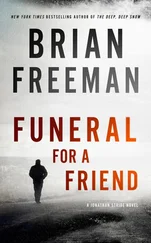Dirk Svensson: Interview and Profile ( Mandelkern )
Elisabeth and I haven’t exchanged a personal word for days, and professionally she’s met me with stubborn resolve for weeks. She gave me the assignment as I returned her gaze aloofly and angrily (her urgent mouth). “Dirk Svensson: Interview and Profile” means a weekend’s less time for what I’d like to say privately to Elisabeth. I’ve heard of Svensson. You can’t escape his name these days, he’s written one children’s book and is probably on the verge of making a fortune. I’m not interested in children’s books or their authors, I don’t want to write a story about this Svensson, I could have said at the editorial meeting, I want to talk to you. But I remained seated and looked first at Elisabeth (red hair tied back off her neck) and then at my feet (green flip-flops). Why now? I asked, and Elisabeth gave a completely professional answer: If the piece couldn’t appear next week, she said, or the week after at the latest, then another newspaper would do the story. The appointment had presented itself today, Svensson had called and actually agreed to a meeting (the connection had been really bad). Svensson the man, Elisabeth said at the editorial meeting, the man remains hidden behind this one children’s book and its sales figures. I’d started the research, but then I passed the job on to her intern, because I’ve never been interested in children’s books. For weeks the editorial department has been abuzz with talk about him, and for weeks the story has been postponed. Svensson doesn’t want to travel, he cancels all his appointments, he lives alone with his dog, and apparently this dog is everything to him (a black German shepherd with three legs). Svensson’s exact place of residence is unknown to us: northeast of Milan, somewhere on Lago di Lugano. Elisabeth pushed the two black folders across the table to me. Mandelkern is the perfect man for this story, she explained at the editorial meeting, this assignment suited me better than anyone else. The trip to the anti-doping laboratory in Châtenay-Malabry would be reassigned to Harnisch, since he’s a former sportswriter (Harnisch is as athletic as a pencil). I’m an ethnologist and get the strange assignments from Elisabeth: Mandelkern writes about anthropological concepts like matrilineality and male childbed, so Mandelkern meets children’s book authors and their dogs. On Saturday (today) I would fly to Milan and return on Sunday (at four). Svensson is peculiar, said Elisabeth with a laugh, but profiles and strangeness are your specialties, Mandelkern.
Taleggio & Quartirolo
It’s Elisabeth’s diplomacy in front of our colleagues that I can’t bear, her defiant diplomacy, which, to appear fair, has to be unfair (the evenly distributed green of her eyes). Her intern had done the research, printed it out, and bound it, Elisabeth said later in the hallway outside the conference room, now it was my turn. She pointed to the black folders in my hand, then her telephone interrupted us. Elisabeth answered with her first name. You’ll definitely find Taleggio and Quartirolo down there, she whispered to me, as if I were running out to the Swiss gourmet deli on Grindelallee to pick up a few things (Christl’s Comestibles). And Barbaresco! That was on Wednesday: she wanted to get personal, I turned around and left. On Thursday we lived alongside and past each other: Elisabeth was asleep when I got home, I was asleep when she headed out (since I started working for Elisabeth’s department, our marriage has become more professional). On Friday morning we happened to meet in the kitchen. We should go out to eat tonight, I said, we can talk rationally on neutral terrain (Elisabeth’s red hair in the backlight like a halo, Elisabeth is a holy witch). Elisabeth’s reply: We drink too much. We don’t have to drink, I said, we have to talk.
Black Dogs
We arranged to meet in an extremely loud restaurant on Paulinen-platz (mandolin music and Italian stage noise). At least it’s from Italy, I said, meaning the wine. I wanted to begin the conversation with all due caution. Elisabeth’s reply: Svensson doesn’t have children either, even though he’s a children’s book author, he seems to be a strange man, maybe the two of you will get along. I noticed Elisabeth wasn’t smoking. I don’t think so, I shouted back, straining to laugh, he has a black dog with three legs, I’m averse to black dogs, starting with the color, black dogs stand guard at the gates of hell and wait. Elisabeth gulped her wine down quickly and refilled our glasses. I’d like to have your problems, she said, maybe there’s a good story there. We ordered and gazed into our glasses (Elisabeth’s slender neck when she swallows like a swan). When I asked later why it had to be this weekend, Elisabeth answered: Staff availability. Or would you have preferred to go to Châtenay-Malabry and test the moral content of Lance Armstrong’s frozen urine samples?
But Elisabeth doesn’t have my problems.
She ordered another wine, the same grape variety, this time a glass (Barbaresco). We still had some bottles in our apartment, Elisabeth said, and I replied only reluctantly: Okay. Not much later I opened one of those bottles and we started drinking in the kitchen (our kitchen), and didn’t speak much there either (she on the glass stovetop, I on the floor next to the cases of wine). I ignored the two black folders full of research on Svensson lying on the kitchen table. She informed me she was giving up smoking, like this and that female editor, she talked about yoga and her thirty-eighth birthday. I knew all these things already, I began, these days we only spoke on this surface level, I really needed to talk again sometime to the woman I’d married, we should have an actual conversation again sometime (we’re circling a child). Elisabeth stood up, put down her wine glass and took a breath:
You should actually write something good again sometime, Mandelkern!
So that she wouldn’t keep talking, I stood up and tried to kiss her. We wrestled, we looked resolutely past each other, then she caught me on the upper lip with her elbow, reflexively I grabbed her wrist a bit too tightly. Her incredulous laugh as I let go of her and felt my upper lip for blood (our work is coming between our lives). Somewhat later, and finally drunk, we ended up in bed after all, for the last few weeks sex for Elisabeth and me has been a question of drunkenness, and maybe we had to ignore the condoms next to the bed (her pills in the old pencil box from school, three names carved into the back, I couldn’t find much else from her life before me). As we rolled over each other and I slipped out of her for a moment, Elisabeth said: Nothing is going to grow in me today, now hold still, Mandelkern! Elisabeth suspects my plans for the childless months and years to come (up to now I haven’t been able to say anything to her; I can’t manage to do it). Elisabeth knows: sometimes one wrong word is all it takes, and I shrink and dwindle and get up and go to the window, only to look out at the darker end of Bismarckstrasse and say it can’t go on like this (in summer you can’t see the streetlights through the leaves of the chestnut trees). So I held still (so I decided to take the plane).
Daniel Daniel
Elisabeth and I live in a prewar apartment that is too large and too expensive for my means on the corner of Bismarckstrasse and Mansteinstrasse. Bedroom, living room, study. We got married in the summer of 2003. I love Elisabeth. I’m educated as an ethnologist and work as a freelance journalist writing for the culture pages. I struggle as everyone struggles. We have an empty room that we call a guest room. Elisabeth is a beautiful woman. I drive a twenty-year-old Renault 4. Maybe another life is a better life. With our salaries the only sensible thing, says Elisabeth, is for me to pay the rent and you the telephone bill. Elisabeth is the most beautiful woman I’ve ever lived in a prewar apartment with. For me, ethnology has nothing to do with Papua New Guinea. I wear a wedding ring on my left hand (brushed silver). Elisabeth has stopped taking the pill, now she wants a child. Elisabeth is a sober woman. She had a child, she lost it, she wants to risk it again. Nothing is going to grow in here, said Elisabeth. So I held still. Then Elisabeth cried Daniel Daniel, she cried Daniel right in my face, she must have really meant me.
Читать дальше












